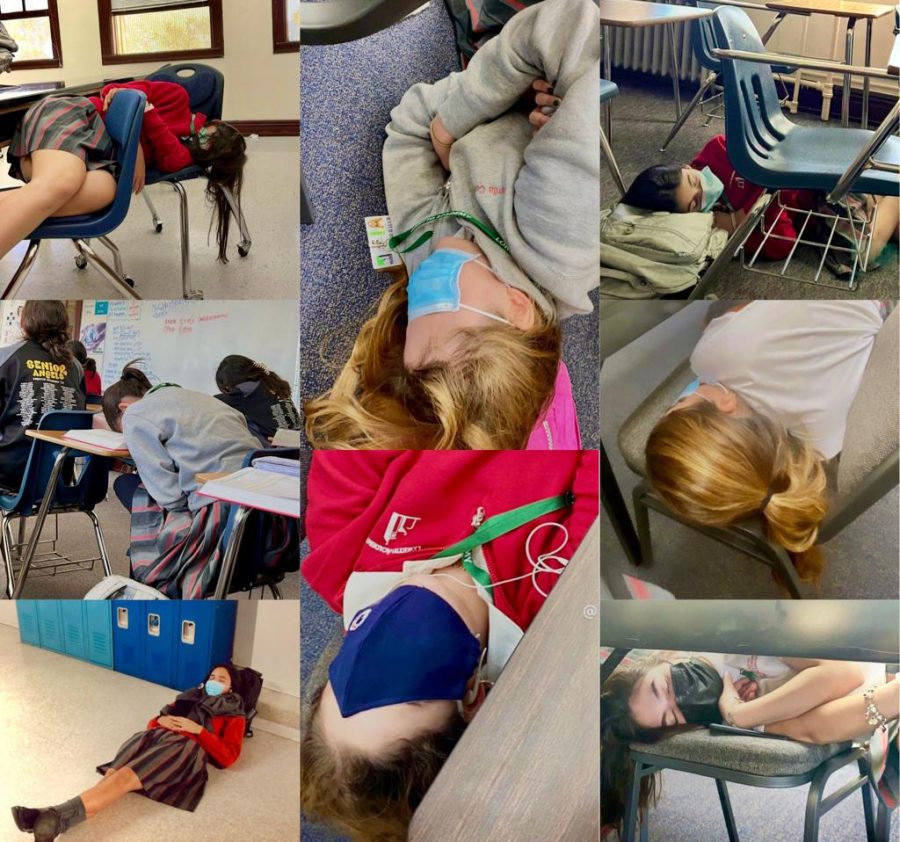Sleep deprived no longer
Several Loretto students are caught taking naps during school due to their lack of sleep at night. According to the CDC, about 72.7% of high schoolers don’t get enough sleep. Photo courtesy of anonymous Loretto students.
March 11, 2022
Loretto girls have a tendency to think that sleeping a daily average of four hours will be enough to help them survive school and extracurricular activities the next day; unfortunately, they are wrong.
One’s dream could be to simply not sleep and not get tired while having everlasting hours of energy and time, but that’s not how it works.
March 13-19, 2022, marks Sleep Awareness Week, which serves as a reminder that sleep is necessary for one’s health and can lead to major consequences when deprivation becomes a habit.
According to the American Academy of Sleep Medicine, children ages 13–18 should sleep 8–10 hours every 24 hours.
After 41 Loretto students replied to a poll about how many hours they sleep each night, only 2 (4.9%) of the 41 students said that they get more than 8 hours of sleep each night.
Loretto junior, Fatima Valenzuela, confirmed that she is in desperate need of sleep.
Valenzuela said, “Every day, I sleep fewer hours because of the hours I spend on extracurriculars and homework.”
Shockingly, the highest range of students slept 5-6 hours, and they made up 63.4%.
One might think that they are simply less efficient when they lack sleep, but in reality, a lack of sleep can lead to significant health risks including high blood pressure, diabetes, heart attacks, heart failure, strokes, obesity, depression, and a weak immune system, according to Cleveland Clinic.
Loretto high school counselor Janise Pries said, “If your brain is foggy because it hasn’t had enough sleep, you will not be able to perform your best, and that defeats the whole purpose.”
Luckily, there are several ways to make sure that one has enough time to rest the body and be prepared for the next day, filled with energy and positive endorphins.
Pries said, “One of the things I’m most concerned about is people being able to relax enough to go to sleep, so one of the things I like to teach is breathing techniques and yoga postures.
I also recommend separating from electronic devices because the blue light, in particular, interferes with your sleep cycle.
The other big thing is to set up routines: a structured time before going to sleep, which might mean relaxing in a hot bath or reading.”
Reinforcing great points that Ms. Pries mentioned, keeping a regular sleep routine during the week and on weekends entails going to bed at the same time every night and waking up at the same time every day, which can improve a person’s sleep time.
Individuals can also set time limits for their use of electronics, sometimes known as a “media curfew”.
National Sleep Week serves as a week in which people have to become aware of the importance of sleep and the causes it can have on humans when they refuse to change their sleep habits.





